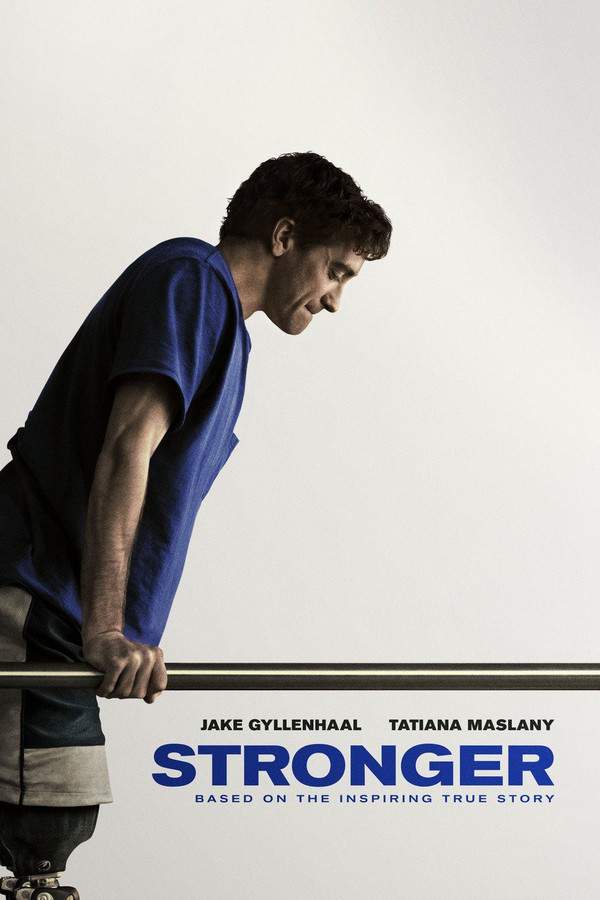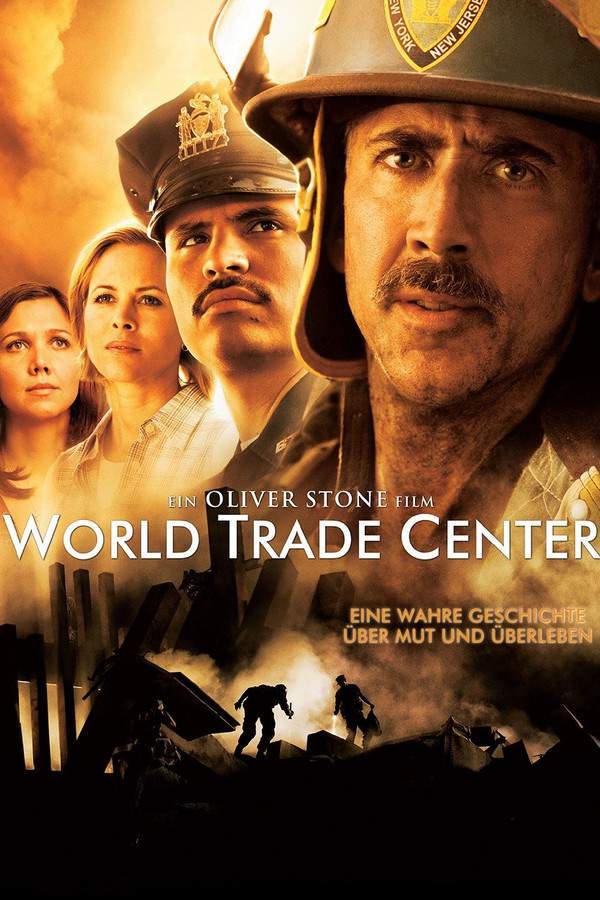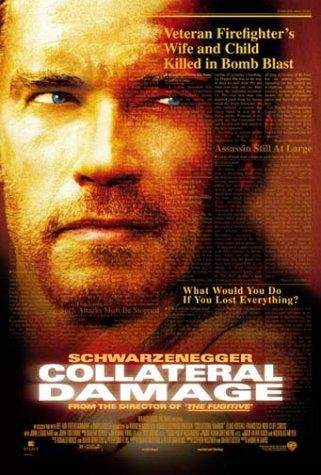
Worth 2021
Directed by

Sara Colangelo
Made by

Netflix
Test your knowledge of Worth with our quiz!
Worth Plot Summary
Read the complete plot summary and ending explained for Worth (2021). From turning points to emotional moments, uncover what really happened and why it matters.
The film begins with Kenneth Feinberg engaging his class at Columbia University, providing a thoughtful perspective on the legal system’s valuation of a person’s life. However, events take a drastic turn with the September 11 attacks, leading to Feinberg’s appointment as the Special Master of the September 11th Victim Compensation Fund. His law partner, Camille Biros, takes on the role of administrative deputy. In the wake of this tragedy, Feinberg devises a stringent formula for determining payout amounts based on each victim’s income. He faces pressure to secure the signatures of at least 80 percent of the 7,000 estimated victims; failure to do so would allow them to pursue lawsuits that they may ultimately lose, jeopardizing the airline industry and risking a financial crisis.
With a deadline looming until December 22, 2003, Feinberg’s first attempt to meet victims proves challenging. During an initial meeting, his efforts to clarify the fund’s regulations are met with hostility. The angry crowd is tempered when Charles Wolf, who lost his wife in the attacks, boldly insists that they hear Feinberg out. However, the confrontation escalates when Frank Donato, the brother of a fallen firefighter, urges Feinberg to include his brother’s tragic story—a story of communication failure in a time of crisis. This moment highlights the tension between the legal framework and the emotional realities of loss.
As Camille Biros connects with victims, she is particularly moved by the plight of Graham Morris, a gay man whose partner perished in the attack. Unfortunately, due to Virginia’s lack of recognition for civil partnerships at the time, Morris cannot receive compensation. The pressure intensifies when well-off families of victims demand larger payouts, threatening the integrity of the fund and the collective effort for justice and remembrance.
Amid the outcry, Feinberg finds himself at an impasse with not only the victims but also the management of the fund. After an enlightening encounter with Charles Wolf at the opera, who shares a personal anecdote of enduring hardship, Feinberg regains his determination to connect compassionately with the families. With renewed vigor, he and Biros start utilizing the discretion afforded by the government to broaden the fund’s eligibility criteria.
As Feinberg engages more with the victims, he creates a dedicated shrine in his office from tokens provided by applicants, symbolizing the impact of their stories on his mission. When Wolf witnesses Feinberg’s genuine empathy towards those affected, he plays a pivotal role in rallying other victims to trust Feinberg’s judgment. By the approaching deadline, a significant number of eligible families decide to apply for compensation, leading to a remarkable success story. In a touching moment, Donato’s widow visits to contribute her late husband’s children’s claims, while Biros delivers emotional news to Morris about the fund’s support for other same-sex couples despite his own heart-wrenching circumstances.
The film concludes with a poignant title card affirming that Feinberg and Biros successfully distributed billions in government aid to 97 percent of eligible victims, and their dedication to helping others affected by similar tragedies continues.
Worth Timeline
Follow the complete movie timeline of Worth (2021) with every major event in chronological order. Great for understanding complex plots and story progression.
Kenneth Feinberg's Lecture
The film opens with Kenneth Feinberg engaging his class at Columbia University. He offers a thought-provoking perspective on how the legal system evaluates a person's life, establishing the foundation for his subsequent actions after a national tragedy.
September 11 Attacks
The events of September 11 shock the nation, leading to immense loss and grief. This tragedy sets the stage for Feinberg's pivotal role in addressing the needs of the victims' families and the nation as a whole.
Feinberg's Appointment
Following the attacks, Feinberg is appointed as the Special Master of the September 11th Victim Compensation Fund. This role tasks him with the difficult responsibility of managing compensation for the victims' families amidst great public scrutiny.
Meeting the Victims
Feinberg's first meeting with the victims is fraught with tension and hostility. His attempt to explain the fund's regulations is met with anger, but Charles Wolf steps forward to urge the crowd to listen to him, showcasing the struggles Feinberg faces.
Frank Donato's Plea
In a poignant moment, Frank Donato, brother of a firefighter who died in the attacks, passionately implores Feinberg to consider his brother's story. This highlights the emotional weight of the victims' experiences and the challenges of quantifying their losses within the compensation framework.
Graham Morris's Challenge
Camille Biros becomes emotionally involved with Graham Morris, a gay man whose partner died in the attacks. Due to Virginia’s laws, Morris finds himself ineligible for compensation, illustrating the discriminatory obstacles that persist even in tragedy.
Demand for Higher Payouts
Pressure mounts as wealthy families of the victims demand larger compensation payouts from the fund. This tension threatens the stability of Feinberg's initiative and complicates the effort to provide equitable support for all victims.
Feinberg's Encounter at the Opera
After an illuminating discussion with Charles Wolf at the opera, Feinberg is inspired by Wolf's resilience. This encounter revitalizes Feinberg's commitment to compassionately understanding and supporting the victims' families.
Reassessing Fund Criteria
With renewed determination, Feinberg and Biros decide to re-evaluate the criteria for compensation. They seek to broaden eligibility, thereby allowing more victims to receive the aid they desperately need, demonstrating their commitment to justice.
Creation of the Shrine
As Feinberg connects more deeply with the victims, he sets up a shrine in his office using tokens and mementos from applicants. This act symbolizes the profound impact their stories have on him and serves as a reminder of the human element in his work.
Wolf's Support
Charles Wolf plays a crucial role in rallying other victims to trust Feinberg. Witnessing Feinberg's genuine empathy helps bridge the gap between the victims and those managing the fund, fostering collaboration towards a common goal.
Success of the Fund
As the deadline approaches, a significant number of eligible families decide to apply for compensation. Feinberg's efforts culminate in a remarkable success story, showcasing the effectiveness of their approach to the victims' needs.
Emotional News for Morris
Camille Biros delivers emotional news to Graham Morris regarding the fund's support for same-sex couples. Despite his own heartbreaking circumstances, Morris learns that his community will not be neglected in the compensation effort.
Conclusion
The film culminates with a poignant title card, revealing that Feinberg and Biros distributed billions in government aid to 97 percent of eligible victims. Their ongoing commitment to assist others affected by similar tragedies reinforces the film's message of resilience and compassion.
Worth Characters
Explore all characters from Worth (2021). Get detailed profiles with their roles, arcs, and key relationships explained.
Ken Feinberg (Michael Keaton)
Ken Feinberg is portrayed as a dedicated and compassionate lawyer tasked with the challenging role of administering the September 11 Victim Compensation Fund. He grapples with the emotional weight of his decisions, balancing legal responsibilities and the profound grief of victims' families. His character evolves from a formulaic approach to one rooted in empathy and understanding as he engages with the affected families.
Camille Biros (Amy Ryan)
Camille Biros serves as Feinberg's administrative deputy, embodying an emotional anchor throughout the process. Her dedication to connecting with victims showcases her empathetic nature, particularly highlighted in her interactions with families and individuals like Graham Morris. Biros often emphasizes the importance of understanding their stories, driving home the human aspect behind the legal proceedings.
Charles Wolf (Stanley Tucci)
Charles Wolf emerges as a pivotal figure representing the victims in the film, advocating for those affected by the tragedy. His character illustrates strength and resilience, as he not only shares his own painful experience of loss but also urges others to engage with Feinberg. Wolf's role highlights the emotional experiences that underpin the quest for justice.
Frank Donato (Chris Tardio)
Frank Donato is characterized by his passionate plea to ensure the stories of victims like his firefighter brother are not forgotten. His urgency emphasizes the importance of communal narratives within the broader context of legal proceedings. Donato’s character showcases the struggle between institutional processes and the deeply personal nature of loss.
Worth Settings
Learn where and when Worth (2021) takes place. Explore the film’s settings, era, and how they shape the narrative.
Time period
2001-2003
The movie takes place in the aftermath of the September 11 attacks, specifically focusing on the period until the December 22, 2003 deadline for the compensation fund. This time was marked by a national outpouring of grief and the urgent need for healing and justice in the wake of an unprecedented tragedy. The backdrop of a post-9/11 society grappling with loss and recovery adds a deep emotional resonance to the narrative.
Location
Columbia University, New York City
Columbia University stands as one of the prestigious Ivy League institutions in the heart of New York City. Known for its rigorous academic environment, it has produced numerous influential leaders and thinkers throughout history. The setting becomes a backdrop for Kenneth Feinberg's initial engagement with students, highlighting the intersection of education and real-world challenges.
Worth Themes
Discover the main themes in Worth (2021). Analyze the deeper meanings, emotional layers, and social commentary behind the film.
⚖️
Justice
The theme of justice is central to the film as it explores how legal frameworks attempt to quantify human loss and suffering. Through Kenneth Feinberg's struggles, the movie questions whether monetary compensation can ever truly address the emotional scars left by tragedy. The tension between legal obligations and moral responsibilities underpins the characters' actions and decisions.
❤️
Compassion
Compassion emerges as a defining theme, especially through the characters of Feinberg and Biros as they navigate their roles amidst the emotional turmoil of victims' families. Their journey uncovers the importance of empathy and understanding in the face of loss, illustrating how human connection can facilitate healing even in dire circumstances. The film emphasizes that compassion is key in administering justice.
🤝
Community
The sense of community is highlighted throughout the emotional turmoil following the September 11 attacks. Families come together to support one another, and characters like Charles Wolf instigate dialogue that fosters solidarity among victims. The narrative underscores the collective journey toward healing, emphasizing the impact of shared experiences in grappling with grief and seeking justice.

Coming soon on iOS and Android
The Plot Explained Mobile App
From blockbusters to hidden gems — dive into movie stories anytime, anywhere. Save your favorites, discover plots faster, and never miss a twist again.
Sign up to be the first to know when we launch. Your email stays private — always.
Worth Ending Explained
Unravel the ending of Worth (2021) with our detailed explanation. Understand the final scenes, character fates, and unresolved questions.
The film “Worth” explores how Kenneth Feinberg’s journey evolves from viewing human lives as mere statistics to recognizing their unique worth and dignity. Initially, Feinberg attempts to quantify the value of lives lost in the 9/11 attacks through a formula, treating victims as numbers rather than individuals. However, as the story progresses, his interactions with victims like Karen Donato and Charles Wolf profoundly change his perspective. Through these personal connections, he begins to understand that human suffering is beyond any calculation. This realization leads him to treat each victim and their family with respect and compassion, acknowledging their pain as something no formula can measure.
In the final scenes, Feinberg asks victims to trust him, showing his genuine commitment to honoring their losses. As the deadline approaches, most victims accept his offer, and the fund is declared a historic success, providing compensation to over 7,000 families. The movie’s climax reveals that Feinberg’s transformation is complete when Charles Wolf, once a skeptic, publicly acknowledges that Feinberg truly feels the loss and is not just a lawyer following a formula. This acknowledgment signifies Feinberg’s internal shift from seeing lives as numbers to understanding that life’s worth cannot be quantified. The film ends on a powerful note of empathy and human connection, emphasizing that genuine compassion arises when we see people not as statistics but as unique, priceless individuals.
Worth Spoiler-Free Summary
Discover the spoiler-free summary of Worth (2021). Get a concise overview without any spoilers.
In the wake of a national tragedy, the United States finds itself wrestling with the impossible task of assigning value to lives lost. The film opens on a quiet campus, where Kenneth Feinberg lectures about the abstract metrics of law, only to be thrust into the heart of a crisis that demands far more than spreadsheets. Appointed as the steward of a newly created compensation fund, he steps into a role that blends bureaucratic precision with the raw urgency of grieving families, setting a tone of solemn deliberation punctuated by moments of unexpected humanity.
Beside him stands Camille Biros, a seasoned mediator whose steady demeanor masks a fierce dedication to the people behind the numbers. Their partnership becomes the film’s emotional anchor, a study in how professional expertise can be both a shield and a bridge when confronting collective sorrow. The dynamic between Feinberg’s methodical approach and Biros’s empathetic outreach creates a layered portrait of two individuals navigating the gray area between policy and compassion.
The world they inhabit is one of muted corridors, solemn meetings, and the ever-present hum of a nation trying to heal. Amid the formalities, the presence of Charles Wolf, a grieving widower whose personal loss mirrors the larger catastrophe, hints at the deeper, unspoken stories that ripple through every claim. His occasional, quiet interventions remind the audience that behind each legal case lies a lived experience, and that true resolution demands more than formulaic justice.
Through restrained cinematography and an understated score, the film balances the stark realities of governmental procedure with the tender, often fragile, moments of connection that emerge when strangers share the weight of unspeakable loss. It invites viewers to contemplate how society measures worth, and whether compassion can ever be quantified.
Can’t find your movie? Request a summary here.
Movies with Similar Twists and Themes
Uncover films that echo the narrative beats, emotional arcs, or dramatic twists of the one you're exploring. These recommendations are handpicked based on story depth, thematic resonance, and spoiler-worthy moments — perfect for fans who crave more of the same intrigue.
Featured on this page

What's After the Movie?
Not sure whether to stay after the credits? Find out!
Explore Our Movie Platform
New Movie Releases (2026)
Famous Movie Actors
Top Film Production Studios
Movie Plot Summaries & Endings
Major Movie Awards & Winners
Best Concert Films & Music Documentaries
Movie Collections and Curated Lists
© 2026 What's After the Movie. All rights reserved.












